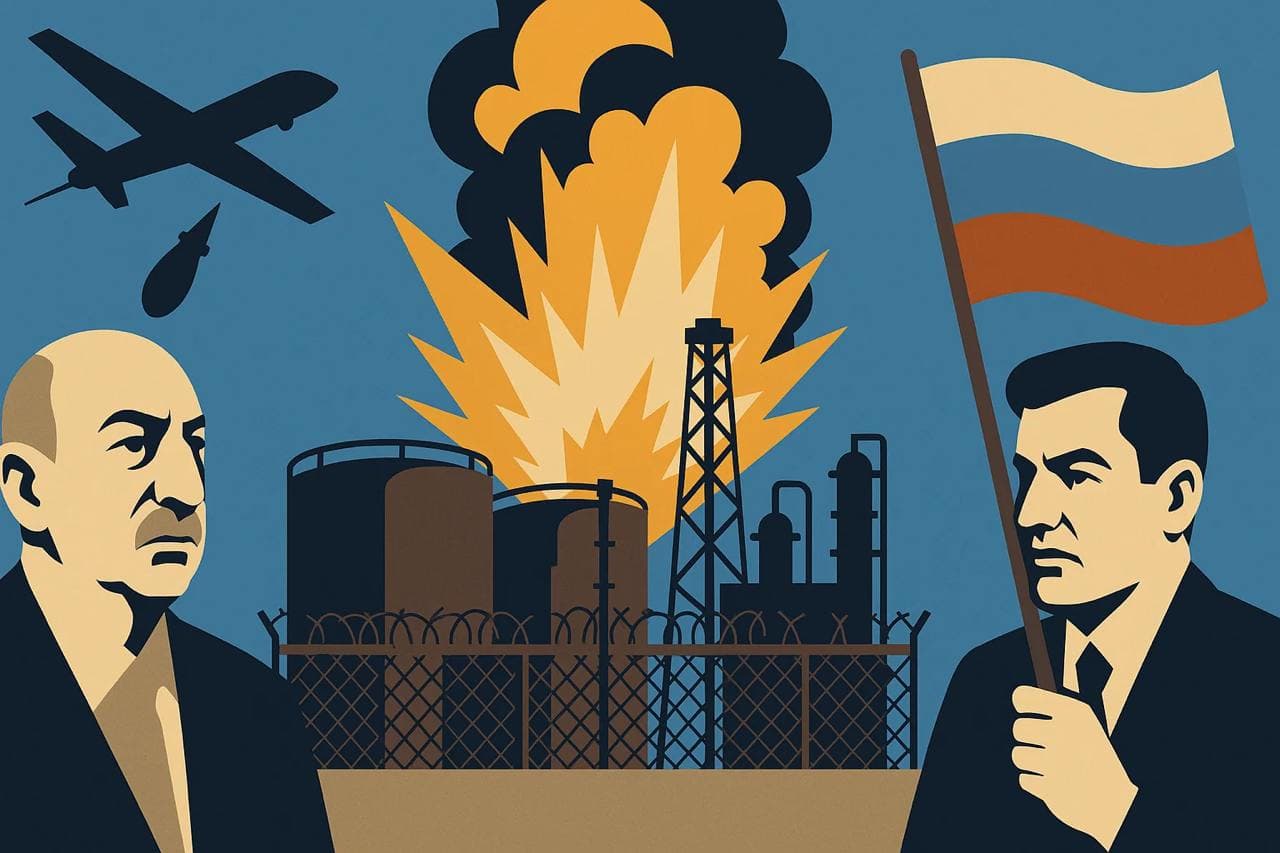Russian Drones Target Azerbaijani Oil Depot in Odessa, Risking Baku-Moscow Rift
In a significant escalation of hostilities, Russian drones struck an Azerbaijani oil depot operated by SOCAR in Odessa on Thursday, causing extensive damage to reservoirs, a pumping station, operator rooms, and the facility"s perimeter fence. This aggressive move marks a troubling trend of targeting foreign energy assets in Ukraine, raising tensions between Baku and Moscow and potentially altering regional alliances.
Background & Context
The recent drone strike is part of Russia"s broader strategy to undermine Ukraine"s energy infrastructure amid ongoing conflict. By targeting oil depots, particularly those linked to foreign nations, Moscow aims to disrupt vital Black Sea oil flows, which could lead to increased energy prices globally. This tactic not only seeks to cripple Ukraine"s logistics but also sends a clear message to other nations involved in the conflict, particularly Azerbaijan, which has maintained a complex relationship with both Ukraine and Russia.
Azerbaijan, under President Ilham Aliyev, has historically been a key player in the region, balancing its ties between Russia and the West. The attack on the SOCAR facility in Odessa underscores not only the vulnerability of foreign investments in Ukraine but also the precariousness of Azerbaijan"s diplomatic position. As previously reported, Azerbaijan has been cautious in its dealings with Kyiv, but the repeated strikes may push Baku closer to a more assertive stance in support of Ukraine.
Key Developments
Following the drone attack, President Aliyev condemned the strikes, characterizing them as a blatant act of aggression against Azerbaijani interests. He hinted at the possibility of providing military support to Ukraine, stating, "Azerbaijan will not stand idly by while its investments are threatened." This statement reflects a potential shift in Baku"s foreign policy, as it grapples with the implications of Russian aggression not only on its territory but also on its strategic partnerships.
The ramifications of these attacks extend beyond Azerbaijan"s borders. Analysts suggest that Russia"s targeting of foreign energy assets is a calculated move to increase energy prices and destabilize economies reliant on Black Sea oil. The ongoing conflict has already strained global supply chains, and such strikes could exacerbate these issues, leaving countries scrambling for alternatives and potentially igniting further geopolitical tensions.
Broader Impact
The implications of this strike resonate through the geopolitical landscape. As energy prices fluctuate in response to these attacks, nations dependent on Azerbaijani oil may seek to recalibrate their energy policies. This situation mirrors previous reports of Russian offensives targeting energy infrastructure, which have historically led to increased tensions among nations reliant on these supplies. The fallout from the Odessa strike may prompt international discussions on energy security and collective defense strategies against Russian aggression.
Furthermore, the incident has drawn attention to the fragility of the current ceasefire in Ukraine. With Ukrainian commanders warning of renewed Russian offensives, the timing of the drone strike raises questions about the stability of the region. As seen in recent developments, the risk of escalation remains high, particularly as foreign nations reassess their positions in the conflict.
What"s Next
In the wake of the drone strike, all eyes will be on Azerbaijan’s next moves and how they will influence regional dynamics. The potential for Baku to increase military support to Ukraine could reshape alliances in the region, prompting a reevaluation of relationships with Moscow. Additionally, the international community may respond by enhancing diplomatic efforts to protect energy assets and support countries facing similar threats.
As the situation unfolds, the focus will also be on the energy markets, where any disruption in supply could lead to significant economic repercussions. Analysts are already monitoring price fluctuations as nations assess the impact of the drone strikes on their energy security. The ongoing conflict and its implications for energy supply chains will likely remain a focal point for both policymakers and industry leaders in the coming weeks.


![[Video] Heavy clashes and gunfire reported in Baghdad, Iraq](/_next/image?url=%2Fapi%2Fimage%2Fthumbnails%2Fthumbnail-1768342239932-848qsh-thumbnail.jpg&w=3840&q=75)




![[Video] Gunfire between Iraqi security forces and Sadr militias in Baghdad](/_next/image?url=%2Fapi%2Fimage%2Fthumbnails%2Fthumbnail-1768343508874-4redb-thumbnail.jpg&w=3840&q=75)
